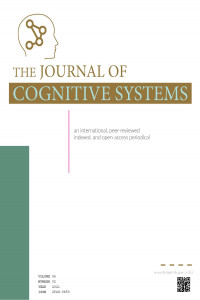IS TURING TEST STILL PROFICIENT AND OPERATIVE AT PRESENT STATE OF THE ART?: BEYOND TURING TEST FOR THE NEXT GENERATION AI FRAMEWORKS
Abstract
The problem of consciousness in terms of artificial intelligence is a difficult and big problem. With the test he put forward, the efficiency of artificial intelligence was discussed and tested. Some scientists have criticized the inability to distinguish between humans and robots with the Turing Test. Problems such as how sufficient this is and how it is possible to compare the intelligence of a human with the intelligence of a robot have been handled philosophically. The main purpose of this article is to address the adequacy of Turing testing and to question artificial intelligence tests and tools that can shed light on shaping the design of next-generation AI architectures. Searle's Chinese room experiment has been reconsidered by Turing by addressing the subjectivity-objectivity problem of Qualia philosophers and giving place to criticisms that can be directed to this test and countercriticisms that can be made to these criticisms. In addition, the role of the new generation Turing test in modeling concepts such as artificial consciousness and machine self-awareness and evaluating their performance is discussed.
References
- Priest, S. (2018). Zihin Üzerine Teoriler (Dereko, A., Trans.). Istanbul: Litera, pp.205
- Bailey, A. (Ed.). (2013). Philosophy of mind: The key thinkers. A&C Black, pp.148.
- Daglarli, E. (2020). Computational Modeling of Prefrontal Cortex for Meta-Cognition of a Humanoid Robot. IEEE Access, 8, 98491-98507.
- Daglarli E., (2020). A Cognitive Integrated Multi-Modal Perception Mechanism and Dynamic World Modeling For Social Robot Assistants, The Journal of Cognitive Systems, 5(2), 46-50.
- Ryle, G. (2011) Zihin Kavramı (Çelik, S. Trans.) Istanbul:Doruk
- Searle, J. (2005). Bilinç ve Dil. (Macit, M. & Ozpilavcı, C., Trans.) Istanbul: Litera, pp. 29-30
- Searle, J. (2014). Zihnin Yeniden Keşfi. (Macit, M., Trans.) Istanbul: Litera, pp. 70.
- Heil, J. (2020). Zihin Felsefesi Çağdaş Bir Giriş (Bilgili M., Akbıyık S. Trans). Kure, pp. 187.
- Say, C. (2021). 50 Soruda Yapay Zeka. Istanbul: Bilim ve Gelecek Kitaplığı, pp. 164.
- Nagel, T. (2012). Mind and Cosmos: Why the Materialist Neo-Darwinian Conception of Nature Is Almost Certainly False. New York: Oxford University Press.
- Floridi, L., & Chiriatti, M. (2020). GPT-3: Its nature, scope, limits, and consequences. Minds and Machines, 30(4), 681-694.
Abstract
References
- Priest, S. (2018). Zihin Üzerine Teoriler (Dereko, A., Trans.). Istanbul: Litera, pp.205
- Bailey, A. (Ed.). (2013). Philosophy of mind: The key thinkers. A&C Black, pp.148.
- Daglarli, E. (2020). Computational Modeling of Prefrontal Cortex for Meta-Cognition of a Humanoid Robot. IEEE Access, 8, 98491-98507.
- Daglarli E., (2020). A Cognitive Integrated Multi-Modal Perception Mechanism and Dynamic World Modeling For Social Robot Assistants, The Journal of Cognitive Systems, 5(2), 46-50.
- Ryle, G. (2011) Zihin Kavramı (Çelik, S. Trans.) Istanbul:Doruk
- Searle, J. (2005). Bilinç ve Dil. (Macit, M. & Ozpilavcı, C., Trans.) Istanbul: Litera, pp. 29-30
- Searle, J. (2014). Zihnin Yeniden Keşfi. (Macit, M., Trans.) Istanbul: Litera, pp. 70.
- Heil, J. (2020). Zihin Felsefesi Çağdaş Bir Giriş (Bilgili M., Akbıyık S. Trans). Kure, pp. 187.
- Say, C. (2021). 50 Soruda Yapay Zeka. Istanbul: Bilim ve Gelecek Kitaplığı, pp. 164.
- Nagel, T. (2012). Mind and Cosmos: Why the Materialist Neo-Darwinian Conception of Nature Is Almost Certainly False. New York: Oxford University Press.
- Floridi, L., & Chiriatti, M. (2020). GPT-3: Its nature, scope, limits, and consequences. Minds and Machines, 30(4), 681-694.
Details
| Primary Language | English |
|---|---|
| Subjects | Electrical Engineering |
| Journal Section | Articles |
| Authors | |
| Publication Date | December 30, 2021 |
| Published in Issue | Year 2021 Volume: 6 Issue: 2 |


